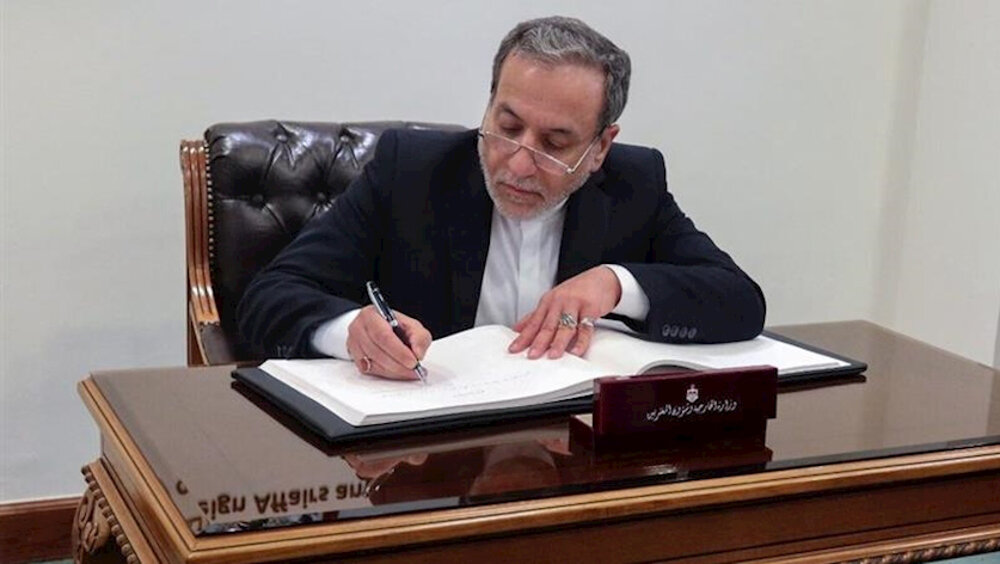No legal basis for reimposing Security Council sanctions: Iran to world powers

TEHRAN – Iran’s foreign minister has dismissed as baseless recent claims by the United States and its European allies that UN Security Council sanctions on Tehran, terminated under the 2015 nuclear agreement, have been reinstated.
In a letter addressed to counterparts across the globe, Foreign Minister Abbas Araghchi said assertions by Washington, London, Paris, and Berlin that previous Security Council resolutions had been “restored” through the so-called snapback mechanism were “unfounded, unlawful, and invalid.”
Araghchi stressed that “no legitimate legal process has occurred that could revive the terminated resolutions. Suggesting otherwise is nothing more than an effort to mislead the international community and to impose unilateral political agendas under the cover of UN authority.”
He warned that such claims undermine the credibility of the Security Council and threaten the foundation of multilateral diplomacy. Citing Resolution 2231—which endorsed the Joint Comprehensive Plan of Action (JCPOA) in 2015—he noted that all prior UN sanctions were terminated and a clear timetable was set for their permanent expiration on October 18, 2025.
“No country has the unilateral right to reinterpret or extend the resolution’s provisions,” he wrote.
The letter further argued that the United States, having quit the JCPOA in 2018, and the E3—accused of “substantial non-performance” of their obligations—are “entirely disqualified” from invoking Resolution 2231. Araghchi charged that Washington and the Europeans are effectively attempting a “unilateral rewriting of international law,” in violation of the resolution and to the detriment of global trust in binding UN decisions.
Reiterating Iran’s categorical rejection of the alleged reinstatement of sanctions, he underlined that neither Iran nor any UN member state is legally obliged to comply. Instead, he urged governments to dismiss such “unlawful claims,” refuse to implement them, and defend multilateralism against “narrow political manipulation.”
Araghchi concluded with a warning that allowing such assertions to stand would gravely damage both the authority of the Security Council and the sanctity of international agreements. While affirming Iran’s readiness to engage in diplomacy, he pledged that Tehran would resolutely defend its sovereign rights and national interests.
The 2015 nuclear accord saw Iran accept restrictions on its nuclear program in return for the lifting of UN, US, and EU sanctions. Resolution 2231 enshrined the deal and set October 2025 as the final deadline for the expiration of nuclear-related measures.
Yet Tehran has long argued that even under former US President Barack Obama, Washington resisted allowing Iran to fully benefit economically from sanctions relief. In 2018, the US unilaterally abandoned the deal and reimposed sweeping sanctions.
Iran, after waiting more than a year for the European parties to compensate for the US withdrawal, began gradually reducing its compliance with the accord—steps that were consistent with the JCPOA—while maintaining its willingness to return to full implementation if sanctions were lifted.
The October 2025 deadline was intended to conclude a decade-long dispute and normalize Iran’s nuclear status. However, the E3 have moved to block this by activating the deal’s dispute resolution mechanism, a step that could pave the way for sanctions to be reimposed if Iran were deemed non-compliant.
Tehran rejects this approach, insisting its countermeasures were a legitimate response to the US and European failure to meet commitments, and thus the E3 have no legal standing to trigger the mechanism. Russia, China, and several other nations have backed Iran’s position, declaring they do not recognize any attempt to restore the terminated sanctions.
